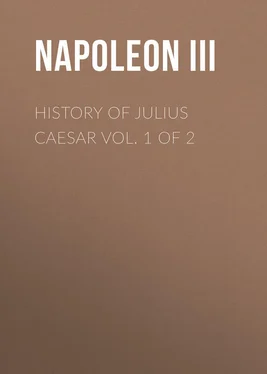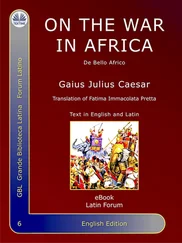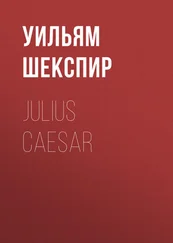Napoleon III - History of Julius Caesar Vol. 1 of 2
Здесь есть возможность читать онлайн «Napoleon III - History of Julius Caesar Vol. 1 of 2» — ознакомительный отрывок электронной книги совершенно бесплатно, а после прочтения отрывка купить полную версию. В некоторых случаях можно слушать аудио, скачать через торрент в формате fb2 и присутствует краткое содержание. Жанр: foreign_antique, foreign_prose, Биографии и Мемуары, на английском языке. Описание произведения, (предисловие) а так же отзывы посетителей доступны на портале библиотеки ЛибКат.
- Название:History of Julius Caesar Vol. 1 of 2
- Автор:
- Жанр:
- Год:неизвестен
- ISBN:нет данных
- Рейтинг книги:5 / 5. Голосов: 1
-
Избранное:Добавить в избранное
- Отзывы:
-
Ваша оценка:
- 100
- 1
- 2
- 3
- 4
- 5
History of Julius Caesar Vol. 1 of 2: краткое содержание, описание и аннотация
Предлагаем к чтению аннотацию, описание, краткое содержание или предисловие (зависит от того, что написал сам автор книги «History of Julius Caesar Vol. 1 of 2»). Если вы не нашли необходимую информацию о книге — напишите в комментариях, мы постараемся отыскать её.
History of Julius Caesar Vol. 1 of 2 — читать онлайн ознакомительный отрывок
Ниже представлен текст книги, разбитый по страницам. Система сохранения места последней прочитанной страницы, позволяет с удобством читать онлайн бесплатно книгу «History of Julius Caesar Vol. 1 of 2», без необходимости каждый раз заново искать на чём Вы остановились. Поставьте закладку, и сможете в любой момент перейти на страницу, на которой закончили чтение.
Интервал:
Закладка:
Thus Rome, having reached the third century of her existence, finds her constitution formed by the kings with all the germs of grandeur which will develop themselves in the sequel. Man has created her institutions: we shall see now how the institutions are going to form the men.
CHAPTER II
ESTABLISHMENT OF THE CONSULAR REPUBLIC
Advantage of the Republic.
I. THE kings are expelled from Rome. They disappear because their mission is accomplished. There exists, one would say, in moral as well as physical order, a supreme law which assigns to institutions, as to certain beings, a fated limit, marked by the term of their utility. Until this providential term has arrived, no opposition prevails; conspiracies, revolts, everything fails against the irresistible force which maintains what people seek to overthrow; but if, on the contrary, a state of things immovable in appearance ceases to be useful to the progress of humanity, then neither the empire of traditions, nor courage, nor the memory of a glorious past, can retard by a day the fall which has been decided by destiny.
Civilisation appears to have been transported from Greece into Italy to create there an immense focus from which it might spread itself over the whole world. From that moment the genius of force and imagination must necessarily preside over the first times of Rome. This is what happened under the kings, and, so long as their task was not accomplished, it triumphed over all obstacles. In vain the senators attempted to obtain a share in the power by each exercising it for five days; 88 88 “The hundred senators were divided into ten decaries, and each chose one of its members to exercise this authority. The power was collective: one alone carried the insignia of it, and walked preceded by the lictors. The duration of this power was for five days, and each exercised it in turn … The plebs was not long before it began to murmur. Its servitude had only been aggravated; instead of one master, it had a hundred. It appeared disposed to suffer only one king, and to choose him itself.” (Titus Livius, I. 17.)
in vain men’s passions rebelled against the authority of a single chief: all was useless, and even the murder of the kings only added strength to royalty. But the moment once arrived when kings cease to be indispensable, the simplest accident hurls them down. A man outrages a woman, the throne gives way, and, in falling, it divides itself into two: the consuls succeed to all the prerogatives of the kings. 89 89 “For the rest, this liberty consisted at first rather in the annual election of the consuls than in the weakening of the royal power. The first consuls assumed all its prerogatives and all its insignia; only it was feared that, if both possessed the fasciæ, this solemnity might inspire too much terror, and Brutus owed to the deference of his colleague the circumstance of possessing them first.” (Titus Livius, II. 1.)
Nothing is changed in the Republic, except that instead of one chief, elective for life, there will be henceforward two chiefs, elected for a year. This transformation is evidently the work of the aristocracy; the senators will possess the government, and, by these annual elections, each hopes to take in his turn his share in the sovereign power. Such is the narrow calculation of man and his mean motive of action. Let us see what superior impulse he obeyed without knowing it.
That corner of land, situated on the bank of the Tiber, and predestined to hold the empire of the world, enclosed within itself, as we see, fruitful germs which demanded a rapid expansion. This could only be effected by the absolute independence of the most enlightened class, seizing for its own profit all the prerogatives of royalty. The aristocratic government has this advantage over monarchy, that it is more immutable in its duration, more constant in its designs, more faithful to traditions, and that it can dare everything, because where a great number share the responsibility, no one is individually responsible. Rome, with its narrow limits, had no longer need of the concentration of authority in a single hand, but it was in need of a new order of things, which should give to the great free access to the supreme power, and should second, by the allurement of honours, the development of the faculties of each. The grand object was to create a race of men of choice, who, succeeding each other with the same principles and the same virtues, should perpetuate, from generation to generation, the system most calculated to assure the greatness of their country. The fall of the kingly power was thus an event favourable to the development of Rome.
The patricians monopolised during a long time the civil, military, and religious employments, and, these employments being for the most part annual, there was in the Senate hardly a member who had not filled them; so that this assembly was composed of men formed to the combats of the Forum as well as to those of the field of battle, schooled in the difficulties of the administration, and indeed worthy, by an experience laboriously acquired, to preside over the destinies of the Republic.
They were not classed, as men are in our modern society, in envious and rival specialities; the warrior was not seen there despising the civilian, the lawyer or orator standing apart from the man of action, or the priest isolating himself from all the others. In order to raise himself to State dignities, and merit the suffrages of his fellow-citizens, the patrician was constrained, from his youngest age, to undergo the most varied trials. He was required to possess dexterity of body, eloquence, aptness for military exercises, the knowledge of civil and religious laws, the talent of commanding an army or directing a fleet, of administrating the town or commanding a province; and the obligation of these different apprenticeships not only gave a full flight to all capacities, but it united, in the eyes of the people, upon the magistrate invested with different dignities, the consideration attached to each of them. During a long time, he who was honoured with the confidence of his fellow-citizens, besides nobility of birth, enjoyed the triple prestige given by the function of judge, priest, and warrior.
An independence almost absolute in the exercise of command contributed further to the development of the faculties. At the present day, our constitutional habits have raised distrust towards power into a principle; at Rome, trust was the principle. In our modern societies, the depositary of any authority whatever is always under the restraint of powerful bonds; he obeys a precise law, a minutely detailed rule, a superior. The Roman, on the contrary, abandoned to his own sole responsibility, felt himself free from all shackles; he commanded as master within the sphere of his attributes. The counterpoise of this independence was the short duration of his office, and the right, given to every man, of accusing each magistrate at the end of it.
The preponderance of the high class, then, rested upon a legitimate superiority, and this class, besides, knew how to work to its advantage the popular passions. They desired liberty only for themselves, but they knew how to make the image glitter in the eyes of the multitude, and the name of the people was always associated with the decrees of the Senate. Proud of having contributed to the overthrow of the power of one individual, they took care to cherish among the masses the imaginary fear of the return of kingly power. In their hands the hate of tyrants will become a weapon to be dreaded by all who shall seek to raise themselves above their fellows, either by threatening their privileges, or by acquiring too much popularity by their acts of benevolence. Thus, under the pretext, renewed incessantly, of aspiring to kingly power, fell the consul Spurius Cassius, in 269, because he had presented the first agrarian law; Spurius Melius, in 315, because he excited the jealousy of the patricians by distributing wheat to the people during a famine; 90 90 “The death of Melius was justified,” said Quinctius, “to appease the people, although he might be innocent of the crime of aspiring to the kingly power.” (Titus Livius, IV. 15.)
in 369, Manlius, the saviour of Rome, because he had expended his fortune in relieving insolvent debtors. 91 91 “From these inflexible hearts came a sentence of death, which was odious to the judges themselves.” (Titus Livius, VI. 20.)
Thus will fall victims to the same accusation the reformer Tiberius Sempronius Gracchus, and lastly, at a later period, the great Cæsar himself.
Интервал:
Закладка:
Похожие книги на «History of Julius Caesar Vol. 1 of 2»
Представляем Вашему вниманию похожие книги на «History of Julius Caesar Vol. 1 of 2» списком для выбора. Мы отобрали схожую по названию и смыслу литературу в надежде предоставить читателям больше вариантов отыскать новые, интересные, ещё непрочитанные произведения.
Обсуждение, отзывы о книге «History of Julius Caesar Vol. 1 of 2» и просто собственные мнения читателей. Оставьте ваши комментарии, напишите, что Вы думаете о произведении, его смысле или главных героях. Укажите что конкретно понравилось, а что нет, и почему Вы так считаете.












